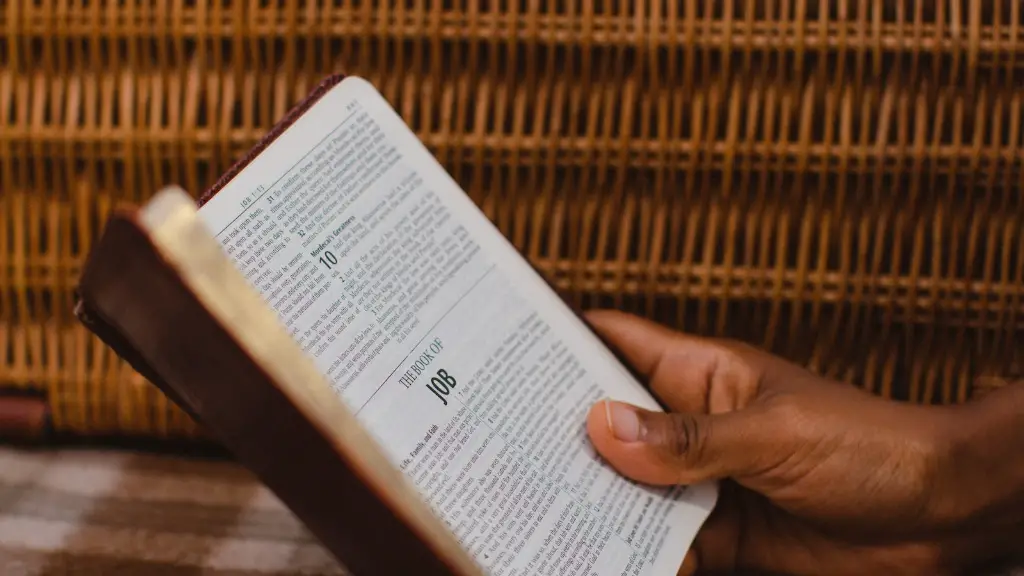The Bible is a collection of religious texts or scriptures sacred to Christians. It is an important source of authority for many Christians. The Bible is not just one book, but a library of many books that were written over thousands of years. The Bible is a complex book, and scholars have long debated its origins. Some believe that the Bible is inspired by God and is therefore factual. Others believe that the Bible is a collection of myths and legends. There is no definitive answer to the question of whether or not the Bible is factual.
The Bible is a collection of religious texts sacred to Christians. It is a record of God’s dealings with humankind. It is also the world’s oldest and most popular book. Christians believe that the Bible is the word of God, and that it is accurate and factual.
How do we know the Bible is factual?
The Bible is an incredibly accurate record of history, despite common skeptical claims that it has often been changed throughout the centuries. The physical evidence shows that the Bible has been transmitted accurately throughout history, and the New Testament records are especially reliable.
Modern archaeology has helped us realize that the Bible is historically accurate even in the smallest of details. There have been thousands of archaeological discoveries in the past century that support every book of the Bible. These discoveries have helped us to understand the Bible better and to see it as an accurate historical document.
Is everything in the Bible factual
The Bible is a true story, but not always factual. The truth of the Bible doesn’t come from the facts of the stories, but rather from the spiritual meaning of those stories.
The New Testament is a reliable and accurate source of information about the life and teachings of Jesus Christ. It has remained virtually unchanged over the centuries, with a accuracy rate of 99.5%. This makes it an invaluable resource for understanding the life and times of Jesus Christ.
Can we trust the Bible?
The biblical manuscripts have been reliably transmitted from the authors to us today. However, there are some variants between the different copies of the Bible that have been found. These variants can be due to a number of factors, such as mistakes made by the scribes who copied the texts, or intentional changes made to the texts. When checking to see if an ancient text has been corrupted, a person should look for other surviving copies of that text to cross reference for variants.
This is not true! Scientists can trace our maternal and paternal lines back to a woman and man who lived a long time ago, but they are not the Biblical Adam and Eve.
Do scientists believe in God?
There is no simple answer to this question. While it is true that some scientists are religious, it is also true that many are not. Additionally, scientists hold a wide range of positions about religion. Some may believe in God, while others may not. Ultimately, it is up to the individual scientist to decide what they believe.
Archeology can often tell us about the history of a certain area, and what happened there. However, it cannot tell us what it means. This is because meaning is something that is determined by individuals, and not by objects or events.
Who created the Bible
While the Bible does not explicitly state that Moses was the author of the Pentateuch, it is generally believed that he was the single author. This is based on the fact that the Pentateuch contains first-person accounts of Moses’ life, including his childhood and the Exodus. Furthermore, God is frequently referred to as “the Lord” in the Pentateuch, which is consistent with Moses’ relationship with God as described in the Bible. Therefore, it is most likely that Moses was the author of the Pentateuch.
In AD 301-304, the Roman Emperor Diocletian commanded that all Bibles be destroyed and decreed that any home with a Bible in it should be burned. In fact, he even built a monument over what he thought was the last surviving Bible. This event became known as the Diocletianic Persecution.
Who created the God?
There is no reason to assume that the universe was created. If all things have a creator, then who created God? God has revealed himself to us in the Bible as having always existed.
The biblical basis for clarity is derived from two sources. First, the words of Scripture are self-attesting because they claim to be from God. Second, the Holy Spirit’s dynamic power applies the truth of Scripture, resulting in a confident assurance in the Word itself.
Is the Jesus Bible accurate
I absolutely love the ESV version of the Bible! It is so accurate and yet still very readable and modern. The headings and subheadings are extremely helpful in guiding the reader through the text.
The Bible is a reliable source of information about itself. It is a accurate book that can be trusted. The Bible is also a reliable source of information about the future. It is a book that can be used to predict future events. The claims of Christ concerning Scripture are also reliable. He is a reliable source of information about the Bible.
What does God say about trusting the Bible?
This scripture is telling us that it is better to put our trust in God because He is faithful and will never leave us or forsake us. But humans are not perfect and can let us down. So always put your trust in the Lord and He will never disappoint you.
God can be trusted to fulfil His promises, but we cannot rely on Him to fulfil our agendas. It is vitally important to have a personal relationship with God, so that we can hold Him to the promises He makes to us. We cannot assume that the promises He made to others in biblical times automatically apply to us.
What language did Adam and Eve speak
Jewish tradition teaches that the Adamic language is the language spoken by Adam in the Garden of Eden. Some Christians also believe that this was the language spoken by Eve. The Adamic language is said to be a very pure and beautiful language. It is also said to be a very powerful language, able to express the deepest truths.
The cave of Machpelah is an important site for Jews and Christians alike. According to Jewish tradition, it is the burial place of the Matriarchs and Patriarchs: Abraham, Isaac, Jacob, Sarah, Rebecca, and Leah. According to Christian tradition, it is the tomb of Lazarus. The cave is located in the West Bank city of Hebron.
Warp Up
The Bible is a book of religious texts that Christians believe to be inspired by God. Because of this, many Christians consider the Bible to be factual.
In conclusion, while there is some debate over the Bible’s accuracy, there is enough evidence to support that it is, for the most part, a factual book.





